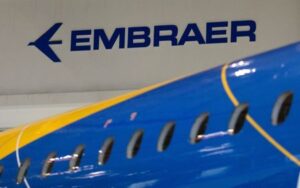JetBlue (JBLU) is turning up the heat in its bid to acquire ultra-low-cost carrier Spirit Airlines (SAVE). A few weeks after SAVE rebuffed JBLU’s initial takeover bid and expressed its support for Frontier Airlines’ (ULCC) cash and stock offer, JBLU is now taking the hostile takeover route. While urging SAVE shareholders to vote against the SAVE/ULCC transaction, the company also announced an all-cash tender offer to acquire all of the outstanding shares of SAVE for $30/share.
Recall that JBLU originally offered $33/share in cash, surpassing ULCC’s bid by nearly 50%. This offer remains on the table if SAVE returns to negotiations, but that seems unlikely given that SAVE is determined to move forward with ULCC. In fact, JBLU cited SAVE’s “unwillingness to share the same necessary diligence information that was shared with Frontier” as the reason why it cut its offer by $3/share.
On paper, JBLU’s proposal looks like a slam dunk over ULCC’s. However, JBLU had to sweeten the pot considerably due to the closing risks that are associated with a SAVE merger. Those closing risks, which center around antitrust concerns related to JBLU’s Northeast Alliance (NEA) with American Airlines (AAL), are ultimately why SAVE is willing to leave a substantial amount of money on the table and move forward with ULCC. As the Department of Justice (DoJ) has already been looking to block the NEA on anti-competitive grounds, SAVE stated during its earnings conference call on May 5 that it’s “common sense” that the DoJ would not approve a merger with JBLU.
Since SAVE shares are still trading about 35% below JBLU’s $30/share bid, the market seems to agree that a JBLU/SAVE merger will not be allowed to happen. The one scenario that could significantly improve the odds for JBLU is if it walked away from the NEA, but it seems unwilling to do so. That arrangement enables JBLU to sell tickets to AAL destinations that aren’t on its own route map, making the alliance a lucrative partnership that the DoJ believes reduces competition in certain northeastern markets.
Now that JBLU is going hostile in its attempted takeover of SAVE, it’s becoming more apparent that the DoJ will likely step in once again. Consequently, this saga will probably take several more months to play out, with more twists and turns along the way. In the end, we still believe that the most probable outcome is a SAVE/ULCC merger, which would create a viable low-cost competitor against the big four airlines (DAL, AAL, UAL, LUV), especially in popular leisure travel destinations.




